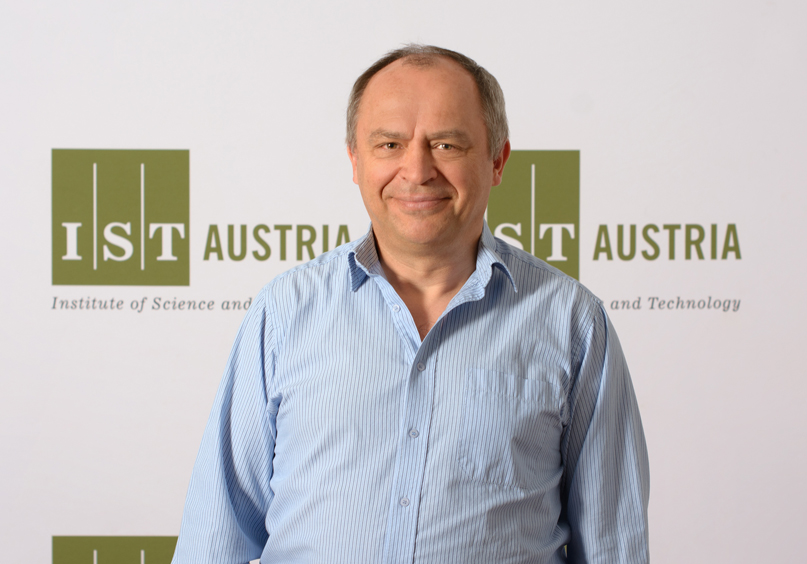May 14, 2018
Leonid Sazanov elected member of EMBO
IST Austria professor honored with membership in distinguished organization of life scientists. Number of EMBO members at IST Austria rises to six
The European Molecular Biology Organization (EMBO) promotes excellence in the life sciences. Today it announced the election of 62 outstanding life scientists as new members who are joining a group of more than 1800 of the best researchers in Europe and around the world. One of them is IST Austria Professor Leonid Sazanov whose pioneering work on membrane proteins is recognized by EMBO with the life-long membership.
Membranes separate the inside of a cell from the outside, but they are not impermeable: ions need to be transported from the outside to the inside and vice versa, and signals are transduced. Proteins in the membrane ensure that these fundamental and vital processes in the cells can take place. They are the target of about two thirds of modern pharmaceuticals, yet the structure of many of such membrane proteins remains unknown today. This is what Leonid Sazanov aims to change with his research. Using X-ray crystallography and increasingly cryo electron microscopy, a state-of-the-art technique to observe biological samples in their natural state, he and his group managed, among other things, to describe the structure of the mammalian complex I and of respiratory supercomplexes in the mitochondria. These are among the largest membrane proteins ever solved, and the discoveries were published in two papers in Nature in 2016. Now the election as a member of EMBO which recognizes his work adds another highlight to his career.
Leonid Sazanov obtained PhD in Biophysics from Moscow State University, Russia, and previously has been a Programme leader at the MRC Mitochondrial Biology Unit, Cambridge, UK. He joined IST Austria in 2015.
With Leonid Sazanov being elected, IST Austria has now six EMBO members among its professors. The other faculty members who are members of EMBO are: Jiri Friml, Nick Barton, Michael Sixt, Carl-Philipp Heisenberg, and Eva Benkova.




